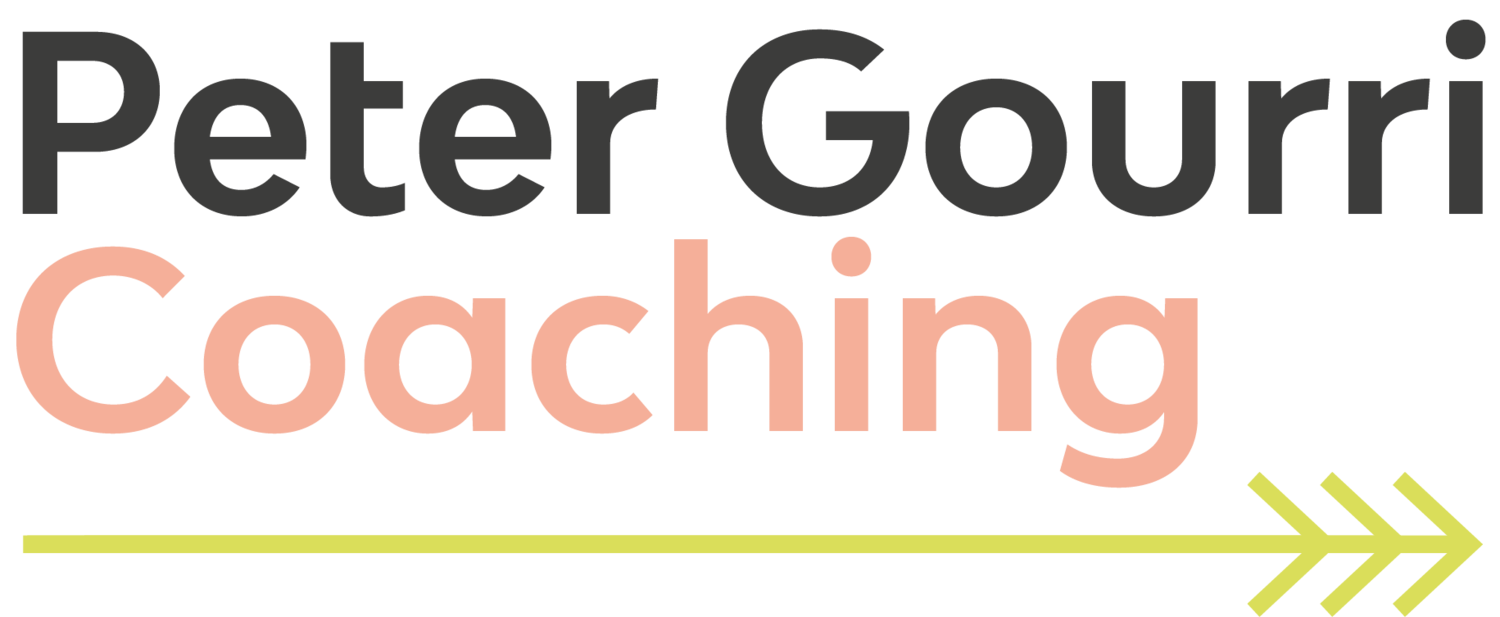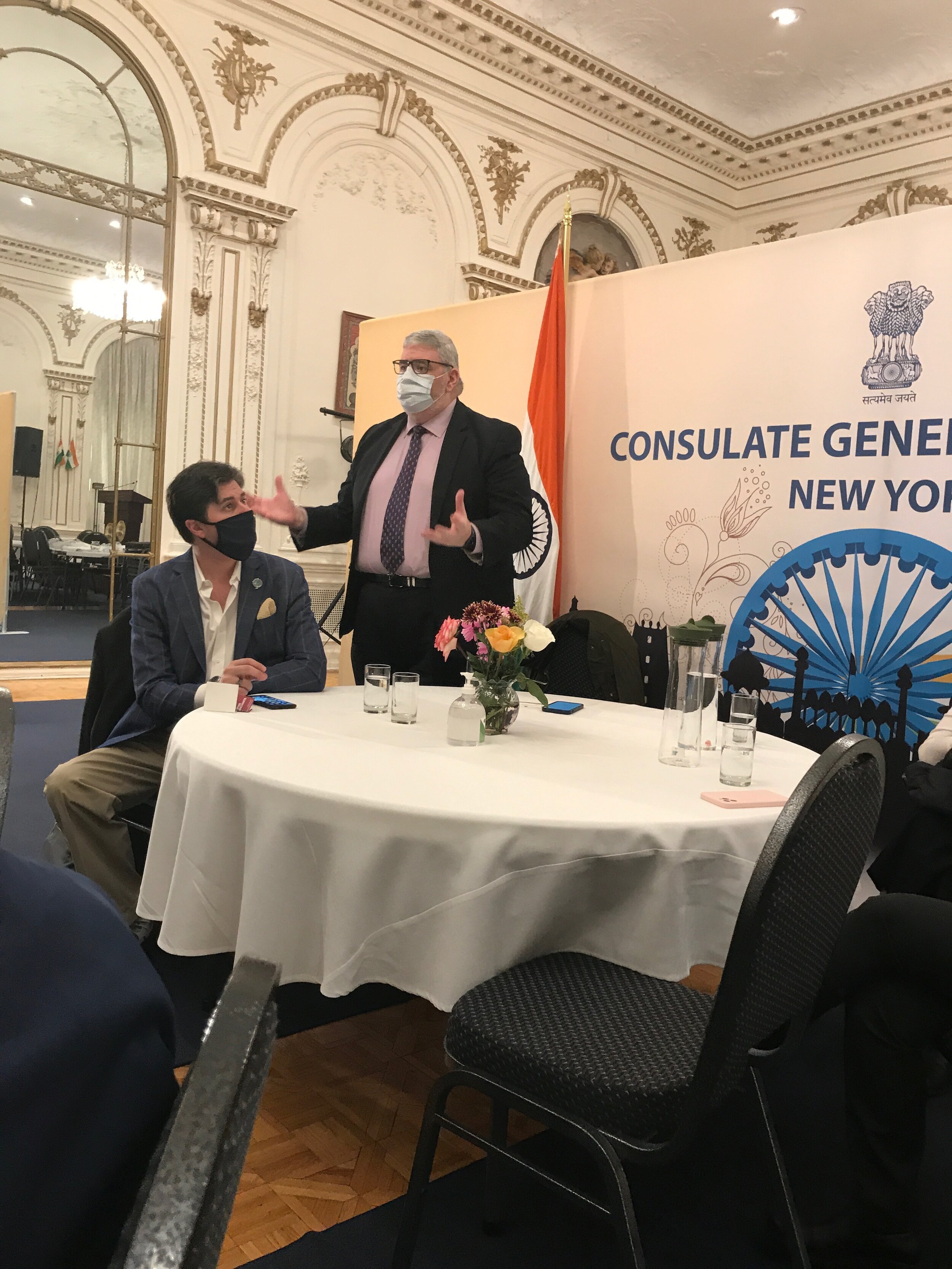“IF” YOU CAN KEEP YOUR HEAD WHEN ALL AROUND YOU ARE LOSING THEIRS!
Rudyard Kipling was a famous British writer born in colonial India in 1865. He wrote a number of notable works but there is one poem in particular that has always struck a chord and even now, despite its Victorian age, can be quite thought-provoking for individuals working in any high pressure or challenging environment. The poem is called “If” and was written in the form of paternal advice to his son, John Kipling, who was killed in World War One while serving as an officer with the Irish Guards at the Battle of Loos.
Rudyard Kipling was a famous British writer born in colonial India in 1865. He wrote a number of notable works but there is one poem in particular which has always struck a chord and even now, despite its Victorian age, can be quite thought-provoking for individuals working in any high-pressure or challenging environment. The poem is called “If” and was written in the form of paternal advice to his son, John Kipling, who was killed in World War One while serving as an officer with the Irish Guards at the Battle of Loos.
If you can keep your head when all about you
Are losing theirs and blaming it on you;
If you can trust yourself when all men doubt you,
But make allowance for their doubting too:
If you can wait and not be tired by waiting,
Or being lied about, don't deal in lies,
Or being hated don't give way to hating,
And yet don't look too good, nor talk too wise;
If you can dream—and not make dreams your master;
If you can think—and not make thoughts your aim,
If you can meet with Triumph and Disaster
And treat those two impostors just the same:
If you can bear to hear the truth you've spoken
Twisted by knaves to make a trap for fools,
Or watch the things you gave your life to, broken,
And stoop and build 'em up with worn-out tools;
If you can make one heap of all your winnings
And risk it on one turn of pitch-and-toss,
And lose, and start again at your beginnings
And never breathe a word about your loss:
If you can force your heart and nerve and sinew
To serve your turn long after they are gone,
And so hold on when there is nothing in you
Except the Will which says to them: 'Hold on!'
If you can talk with crowds and keep your virtue,
Or walk with Kings—nor lose the common touch,
If neither foes nor loving friends can hurt you,
If all men count with you, but none too much:
If you can fill the unforgiving minute
With sixty seconds' worth of distance run,
Yours is the Earth and everything that's in it,
And—which is more—you'll be a Man, my son!
Rudyard Kipling
It Worked For Me!
I first came across General Colin Powell’s Thirteen Rules of Leadership several years ago but in all honesty, gave it little notice until I decided to listen to his audiobook a few months ago, which in turn prompted me to purchase the hard copy of the book. I was sad when he passed away in October 2021. He was an inspirational leader during his time in service and easy to admire.
General Colin Powell’s 13 Rules Of Leadership
Colin Powell’s Thirteen Rules of Leadership
I first came across General Colin Powell’s Thirteen Rules of Leadership several years ago but in all honesty, gave it little notice until I decided to listen to his audiobook a few months ago, which in turn prompted me to purchase the hard copy of the book. I was sad when he passed away in October 2021. He was an inspirational leader during his time in service and easy to admire.
Some of the principles he made reference to were principles that I followed and suggested to others so not necessarily new to me but the difference this time was that I found myself giving more thought to his comments within the context of the current business environment, especially in the age of virtual communication, and how many of my executive clients could benefit from approaching his suggestions, albeit with their own adaption according to individual circumstances.
Listening to Colin Powell’s Rules in his own spoken word, I felt like I was talking to an old friend, giving words of advice on how to live life. His rules which I have highlighted in bold letters are full of emotional intelligence and wisdom for any leader. I’ve added my own thoughts and my invitation to others are to interpret, remember and apply these for yourselves.
Rule 1: It Ain’t as Bad as You Think! It Will Look Better in the Morning!
These are the words of a man and of a leader who lived a purposeful life. It is true how many events that seem so devastating have in them the seeds of renewal if we look for them. Give it some time and perspective. You can deal with it! You have made it this far!
Rule 2: Get Mad Then Get Over It! OK, you’re angry and probably rightly so! Instead of letting anger destroy you, use it to make constructive change in your organization or even in your life. Acknowledge and accept that you are angry and then use your anger in an effective manner for your own benefit and the benefit of others.
Rule 3: Avoid Having Your Ego So Close to your Position that When Your Position Falls, Your Ego Goes with It!
Your position is what you do to live, it is not who you are. Leaders that have “their egos in check” will lead from whatever position they hold. For them, a position is just a means to an end–not the end itself. You can always lead!
Rule 4: It Can be Done!
Being a leader is all about making things happen. If challenged, they will ask, Why Not, when faced with the improbable. While one approach may not work, it might be done another way. Being a leader is about being able to take a step back, get some elevation and gain an overview. Don’t be afraid to review plans of action with renewed knowledge. A good leader will not hesitate or be afraid to be open to change a course of action. Consider and find the other way to make it happen!
Rule 5: Be Careful What You Choose! You May Get It!
When making decisions, consider the potential implications and decide carefully as well as wisely. You will have to live with your decisions, and many decisions have unintended consequences. This also includes the people you choose to associate with. Choose them wisely too! You are affected by the company that you keep.
Rule 6: Don’t Let Adverse Facts Stand in the Way of a Good Decision.
Whoever said leadership was easy! If they did, they were not truthful. Leaders sometimes have to stand alone (or with the support of only a few) on what they know to be right. They have to make difficult, right decisions that may cost them some relationships. Fortunately, the truth has a way of surfacing with time. Leaders we now admire such as Nelson Mandela, Dr. Martin Luther King and President Abraham Lincoln had plenty of people who detested them in their times. Make the right decision, take the heat, and let time and good results prove you right!
Rule 7: You Can’t Make Someone Else’s Decisions! You Shouldn’t Let Someone Else Make Yours!
While good leaders listen and consider all perspectives, they ultimately make their own decisions and take responsibility for their choices. If it does not feel, seem, or smell right, it may not be right. Make your own decision about what is in your own best interests. Accept your good decisions. Learn from your mistakes. Experiences make us more learned and better leaders.
Rule 8: Check Small Things!
While leaders live in the “big picture” world they should never forget the importance of the details and they should ensure that the details get the attention they deserve. It is often the small things, or little foxes as King Solomon put it, that ruin the best laid plans. Don’t forget the details! Don’t forget your people!
Rule 9: Share Credit!
It is probably our modern culture but “leader worship” can sometimes appear engrained in us. The CEO’s get all of the attention and most of the credit for a company’s success. Leaders are indispensable to success, but the truth is a leader cannot achieve success on their own. The success of leaders is built on the talents of the people working with them to fulfill the vision. Without them, leaders might not be so successful. As a leader, share the credit with others.
Rule 10: Remain calm! Be kind!
It is hard for a leader to inspire confidence and resilience in others if he or she cannot keep his or her composure in times of difficulty. It is hard for a leader to garner loyalty from others if he or she treats others badly. Remain calm and be kind and your team will climb mountains for you!
Rule 11: Have a Vision! Be Demanding!
Lost sometimes in the language of inclusion, employee participation, servant leadership, motivation, etc. is the fact that leaders are demanding when it comes to fulfilling the vision. Effective leaders do not accept poor performance and mediocre results. They hold people accountable for their performance. It is talented people working diligently that achieve success. Be clear about what needs to be done and hold people accountable for fulfilling their roles and responsibilities.
Rule 12: Don’t take counsel of your fears or naysayers!
Fear can be paralyzing! Further, there will always be those who do not support a leader or have his or her best interests at heart no matter how hard the leader tries to work effectively with them. To lead others effectively, tune out your fears and the uninformed naysayers. You will be more successful.
Rule 13: Perpetual optimism is a force multiplier!
There is something to be said for the leader who refuses to accept defeat and continues to adapt as necessary until he or she is successful. He or she is a force to be reckoned with and he or she will positively impact others. Remain optimistic and your leadership effectiveness will multiply.
Colin Powell’s short rules are full of wisdom and application. They remain powerful lessons for any leader. These rules encourage leaders to manage their emotions effectively, have a realistic sense of who they are as a person, model the behavior they expect from others because they themselves serve by example.
We can all do well with these 13 rules!
Seven habits you need to break for a successful entrepreneurial business life
Life can be pretty tough at the best of times, but to have a successful self-employed life, it can sometimes feel like you have to put in more hours, take on more projects, some of which you do not actually want, and get yourself ‘out there as much as possible. But bad habits can form, even those built on good intentions, and frequently these can actually hold you back.
Life can be pretty tough at the best of times, but to have a successful self-employed life, it can sometimes feel like you have to put in more hours, take on more projects, some of which you do not actually want, and get yourself ‘out there as much as possible. But bad habits can form, even those built on good intentions, and frequently these can actually hold you back.
From my own experience as a business coach, I have come up with a few ideas of habits you might consider stopping straight away to give you a happier and far more successful business life.
1. You are easily distracted
On a day-to-day level, you may find that you sit in front of the computer to work on creating materials, business or coaching plans but instead frequently find yourself distracted by the call of social media, cat and dog videos, or reading online articles, some of which have nothing whatsoever to do with business but what occurred at the Oscars, considering each and every possible angle of the event. Sound familiar?
One of the approaches I adopt to help myself is to write a list of what I want to do, I set a timer for a limited period of 15/20 minutes or so, and promise myself that I will not get distracted, or do anything else until the timer is up.
Distractions can also be bigger and come from not having a focus or goals for your business. Many entrepreneurs are people who can get distracted by new ideas and possible opportunities. It even has the name ‘bright, shiny object syndrome! It is not dissimilar to when a dog gets completely distracted by a squirrel whilst on a walk!
When new opportunities or ideas do appear, ask yourself whether it’s really relevant to the direction you want for yourself and your business. If it’s not, then it is likely to be an unnecessary distraction, even if it is fun on the face of it.
2. Working 24/7
Even workaholics have to sleep. As I type this late in the evening, I have placed myself under the pressure of believing that this is something I need to do. But with that in mind, ask yourself, if I do not take care of myself, who is going to take care of my business if I end up being unable to properly function. As an entrepreneur, it is a very easy and slippery slope to start clocking up 60-, 70- or even 80-hour workweeks. You might feel that if you just put in more time on your business to create success.
Many people feel like working 24/7 is manageable until, suddenly, it isn’t. Their health starts to suffer, they can’t sleep, their mental health declines, and they become isolated from their friends and family. As much as you love your entrepreneurial business, it’s important to maintain your work/life balance. Make time for yourself and be with people around you that you care about. Take time off, and take up pastimes that give you joy. In terms, you might be surprised at the positive effect on your business.
3. Setting boundaries
Entrepreneurs often find they have to increase their work time when they don’t set boundaries. If you are someone who feels obliged to say ‘yes’ to every request or opportunity, who feels unable to let anyone down, and who is worried about not being available, it can get exhausting very quickly.
As an entrepreneur, you should be able to set the boundaries for your business that suit you. This includes your working hours, availability, and even when you are happy to answer the phone. If you choose not to work Fridays or you only like to have telephone meetings after lunch, that is your call. Be clear with clients and contacts so you can manage expectations. Make sure you stick to your boundaries, Structure your working week in a way that suits you.
4. Starting too late in the day!
You will read a number of books and articles that state that many successful entrepreneurs, freelancers, and business people swear that the secret to their success is making an early start on their work every day.
You might find that getting up an hour earlier and implementing a morning routine such as writing a to-do list or checking your emails before your clients are in their offices helps you to manage your workload. Of course, this doesn’t always work for night owls, but it might be worth a try, and be sure to avoid taking long naps during the day.
5. Doing work that makes you unhappy!
One of the consequences of a bad habit such as saying ‘yes’ to everything is that you can end up creating a job for yourself that makes you unhappy rather than a business that fulfills you.
Sometimes, we all find ourselves taking on work or clients that don’t gel with our own values or who have unrealistic expectations. This can be draining. Bad client and bad work are simply not worth it!
If you are doing work that makes you unhappy, ask yourself way and is it really worth it? Look at your database of customers. Who are the clients that you love working with? What projects fill you with excitement? What are you passionate about?
If you can build your business around these things, you are likely to find a significant positive transformation in your life.
6. Sitting at your desk for too long
Even if you’re disciplined about the hours your work overall, you could be spending too long at your desk throughout the day. Short, frequent breaks have been found to be far better for us than less frequent longer breaks. Try to take five to ten minutes away from your desk at the end of every hour and you should feel much more productive.
7. Overpromising
Don’t do it! It is such a common entrepreneurial habit to overpromise. You want to look like you’re completely in control and capable of delivering whatever your clients need. But this also means that you might over-extend yourself, underestimate how long a project will take to complete and deliver it late or offer to take on more tasks that you can accomplish with your current workload, eventually letting people down. They say it’s better to under-promise and over-deliver.
If these extremely brief examples sound familiar, let’s have a conversation. My clients past and present have benefited greatly from working with me in these and many other challenging aspects of the business.
What to do if you hear or become aware of a microaggression
All leaders, whether holding the title of manager, director, supervisor, department head, partner or more importantly, an individual in the workplace, have a unique opportunity, as well as a responsibility to be a role model in creating an inclusive workplace.
All leaders, whether holding the title of manager, director, supervisor, department head, partner or more importantly, an individual in the workplace, have a unique opportunity, as well as a responsibility to be a role model in creating an inclusive workplace.
What this means in real terms is recognizing and mitigating potential harmful behaviors in yourself, and in your team members. Easily one of the main examples of this is speaking up if you hear or see something inappropriate, especially any act which could be considered a microaggression, such as interrupting, taking up airtime, dismissing or taking credit for someone else’s ideas, diminishing someone’s experience, stereotyping, or using problematic language. These behaviors are often unintentional, which makes it all the more important to call them out. If a situation like this comes up, be sure to pause and name what’s just happened. For example, if someone uses an outdated or problematic word to describe a group of people, you might say: “Hey, Just so we are all aware, I just want to take a moment here. It’s really important to focus on the language we use to describe people, and XYZ is a not considered an acceptable term.” The object of the exercise is to educate others rather than shame them (which is more likely to alienate and less likely to result in change).
It is always good practice to follow up with the individual after the incident to discuss in private and provide them with helpful learning resources, offering to continue the conversation if they’d find it helpful. The world can be a complicated ever-changing place where people might not fully understand their conduct. It isn’t wrong to take a moment to hold someone to account or support them with knowledge.
This article is not intended to address the specific definitions of microaggressions themselves but this helpful video from Quart while not comprehensive is a helpful guide.
Why do people use me as a business mentor or coach?
Why do people use me as a coach, especially my large corporate clients as well as business clients? Well it isn’t just because I am a trained ICF coach who also has extensive experience in coaching as well as leader ship and personal development. I make it my business to ensure that I have the knowledge and the abilities to make my clients more successful.
Peter Gourri at the Indian Consulate in New York City on January 19, 2021
Why do people use me as a coach, especially my corporate as well as other business clients? Well it isn’t just because I am a trained ICF coach, who also has extensive experience in business mentoring and coaching, leadership training and personal development. It is also because I make it my business to ensure that I have the up to date knowledge of business practices to ensure I have the abilities to make my clients more successful.
I was delighted to have been invited by Consul General of India in New York City, Mr Randhir Jaiswal, in partnership with MPEDA and USISPF to an event celebrating Indian Seafood and its impact in the United States of America. It’s a lesser known fact that India exports thousands of tons of seafood, especially shrimp to the USA every year. After an excellent presentation, during which I had an opportunity to ask questions from subject matter experts in India and New York, there were samples of food to taste and enjoy. The food as you would expect was absolutely delicious. It was presented by the famous Michelin Star Chef Hemant Mathur of Saar
For me, being invited to the consulate wasn’t just having some fun engaging with others and tasting delicious food, although it was definitely enjoyable. It was primarily an opportunity to obtain knowledge about different aspects of international business. My background in business goes back to 1987 when I started off as a 17 year old outdoor clerk with a firm of Solicitors (Attorneys) in the Inner Temple area of the City of London. After hard work and a legal education, I rose to become a senior litigation and business lawyer representing small, medium and large businesses as well as individuals.
My practice included providing business and legal advice and suing or defending against governments, institutions with diplomatic immunity to multinational conglomerates and all types of business. I also enjoyed representing nonprofit organizations and startups, providing them with practical advice on best practice and success.
Because of my extensive background in business it means that I have very extensive set of skills not just as an ICF coach but also as somebody who has been there, done it and helped numerous individuals and businesses to transform themselves into greater success and contentment. I’m able to give my clients practical knowledge based on that extensive expertise in business and individual success.
If you want to make your business more successful, or perhaps you want to have a startup or resolve issues which you can’t quite put your finger on as to why it is still around, drop me a line by clicking here. I have no doubt I will be able to help you.
Paying It Forward in 2021
The numerous universal examples of "Service Above Self" that I have seen throughout my life and especially in the last year have inspired me to continue to give back to others and pay it forward even more in 2021
New Years Eve 2020 - Colgate Clock - Jersey City
The numerous universal examples of "Service Above Self" that I have seen throughout my life and especially in the last year have inspired me to continue to give back to others and pay it forward even more in 2021.
I have decided that one of my personal goals for 2021 is to make available free of charge, three 45-minute business mentoring/coaching sessions per week to individuals or businesses. I am happy to discuss whether this is on an individual, team or organizational level. So if you, or anyone you may know could benefit from 45 minutes of professional qualified mentoring/coaching, please share this email, book a 45 minute session via this link
Why am I doing this? Well, just before midnight on the 31st December 2020 I went for a walk beside the Hudson River where I live, and I took this photograph of the World Trade Centre and Manhattan. I reflected on the beginning of 2020 when I sent an e-shot in which I mentioned how we were now living in a new decade which was being referred to as “The Roaring Twenties” all of which was terribly exciting, and after a challenging past decade for many of us, it was now our time to seize the day and plan carefully for the future, both in our business and personal lives.
I don’t need to tell you that 2020 hasn’t been easy for many of us but if there was one positive aspect of the world we have all seen over the last year it is that we have all in our own ways tried to help each other. And I’ve learned over the years that when situations might appear at their worst, it will almost always bring out the best in people.
In the last year, I provided pro-bono coaching sessions to the many individuals who needed help. Many persons found their businesses and personal lives in severe difficulties. Working with me has given people the opportunity to gain clarity both in the here and now as well as the future.
Think about what you want to create not just in 2021 but beyond that in 2025, 2030 and beyond, not just for your professional and business world but your personal life. This is my work and my passion. Helping those to have a successful future.
I wish you all the very best in 2021.
Peter Gourri
Taking Care of Yourself and Others
I was delighted to be a guest on the "The Modern Manager" Podcast with Mamie Kanfer Stewart where I talked to her about business leaders taking care of themselves and others in the Covid-19 era.
When we entered this pandemic I made a promise to myself that I would not write any articles or emails about Covid-19. We are 6 months into this very strange and stressful period in history and so I decided to review my position as any leader should, and break my promise. I was delighted to be a guest on the "The Modern Manager" Podcast with Mamie Kanfer Stewart where I talked to her about business leaders taking care of themselves and others in the Covid-19 era.
You can listen to the Podcast by clicking on this link which will take you to Mamie's podcast page.
I can’t guarantee there won’t be challenges in the future but I can promise you will find listening helpful. Remote working, limited public life and human interaction, rising tensions, and mounting uncertainty, has taken its toll upon many worldwide. Only today I was reading just how badly people have been affected and let's be honest, there are few who have not been affected, either directly or indirectly, by the Pandemic. Many managers, business leaders, and their team members are experiencing non-stop excess stress, overwhelm, and are nearing burnout. This isn’t healthy or sustainable.
Mamie and I talk about how to take care of yourself and your team members during this time of immense stress and uncertainty. We get into some healthy self-care practices that are good even when there isn’t a pandemic, how to take advantage of this strange time, and more beyond. You can also Subscribe to the newsletter for "The Modern Manager" to further get further episodes, articles, and free mini-guides delivered to your inbox. You can also read the related blog article Self Care Tips For Managers And Teams During COVID-19
The Key Takeaways from our discussion are:
Because our mood heavily impacts how we see the world when under excess stress, it's easy to misinterpret actions or written communications (e.g. email or chat). Before assuming the worst, consider the facts vs your interpretation of them. Pause before responding when you feel emotionally triggered. Take a break and return to the situation with fresh eyes and a calm mind.
Give yourself and others a break. We’re all navigating the same complex, confusing and stressful situation. Beating yourself up helps no one, especially your team.
Make time in your calendar for self-care, including the time to do simple things like to prepare and eat meals, go for walks or exercise, etc. Offer to switch a video meeting to audio-only or a phone call to have a bit of a break for everyone. Maybe try a socially distanced walk to have an in-person meeting but only if it is safe to do so and proper precautions are taken in accordance with the relevant advice from the authorities.
Take vacation time even if there is nowhere to go. There are plenty of things you can do if you put your mind to it. Discover a new park within driving distance or simply take a personal day at home to relax. Encourage your team members to take breaks and time off. You can be a role model this healthy behavior for them by leading by example.
Take up a new hobby or find an activity that energizes you. Or design a project for yourself and work toward it. Create a future vision for yourself by writing a letter to yourself as if you’ve achieved that future state. It will give you something to aim towards and remain focused. Spend time investing in the skills that will help you advance your career or business. Take an online course, etc. Know that you will get through this and be stronger because of this experience, no matter how challenging it is.
If you would like to explore any aspect of your business or career, please do not hesitate to book a session with me using the link here. You never know, it might just make an enormous difference and it what I do! I already make a difference to individuals and businesses. I can help you and your business too.
Why you need to think about contingency planning
It is never too late to do so and whether you are a business or simply in your personal lives, these suggestions might help. I stress that this is not a comprehensive authoritative list.
When considering where things are at the moment, with all the stress of COVID-19, think about your contingency planning.
Why is it a good idea to have a contingency plan?
It is never too late to do so and whether you are a business or simply in your personal lives, these suggestions might help. I stress that this is not a comprehensive authoritative list. Just some thoughts that might help give you a head start with your own ideas and thoughts, starting with the How, Where, Who and What of contingency planning.
How will I be able to make it work
How will circumstances change the way you or your employees are able to undertake their work? Can you work at home? What do you do about the kids, internet bandwidth being under strain, the dogs barking curing conference calls or even elderly relatives popping in to see what you are up to! If you are living in limited space and your partner, roommate, family members or the like are also having to work from home, agree boundaries and rules. Make sure you have a healthy routine. Eat, sleep and eat as if you were in the office.
Where will I be spending most of my time
Will your business be able to operate. Can it work remotely without interruptions? Are the systems in place to enable this? We are so used to everything working when we expect it, we forget to test for redundancy in the event something goes wrong. Working from home has its own challenges in terms of productivity. Everyone can slip into bad habits both in terms of working too little or too much for that matter. Does everyone have sufficient and appropriate equipment to work at home. Is it actually there? What is required?
Who must be notified?
Our immediate thoughts might be employees or business partners/colleagues but what about clients. Reassure them you are fully available, and you have plans in place for uninterrupted. Also consider connecting with landlords, bankers, accountants, lawyers and other professionals who might be able to help you. Just give them a heads up so they can support you when you need it. Also, other people in your field of business. It is always heartwarming how even competitors will come together to help each other in difficult times. Think about having in place an emergency chain of command if things go wrong. Perhaps have triangle communications system for staff members to update others even if you do have a system in place for group electronic updates via WhatsApp, text, email etc. People need human contact. And don’t forget to keep staff members updated and in contact with each other. Group video conference meetings are so easy to do these days and it helps those members of staff to feel the support of both team and business.
What systems and processes will be affected?
What can only be undertaken in the business environment manually? Artists pictures can be online but what do you do if they are sold and your gallery is in lockdown. What about your notes from that meeting before the office was closed or the camera you took those photos on when you did a site inspection, that you left in a drawer in the office? You get the picture! In my world, I can survive with a smart phone which has internet service and my headphones but that is not the same for all businesses.
Lastly, remember to breathe
So many people are approaching me because they find themselves in overwhelm. The most important thing to remember is it’s fine. There’s a lot going on. My suggestion for you is to take a step back, get some elevation and gain clarity. Make a plan of what you need to do to achieve your success and then go with it. I stress, these are just some thoughts to help you get started. Plans like these can be several paragraphs or run into hundreds of pages depending on the organization or business.

























